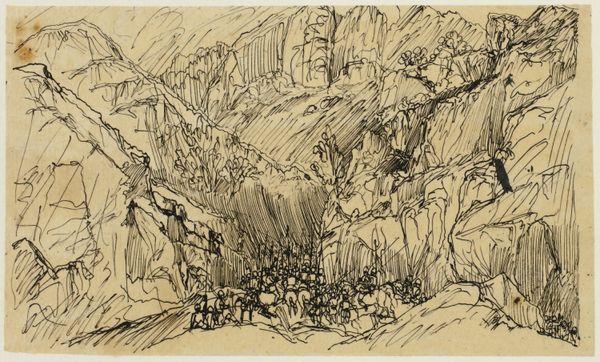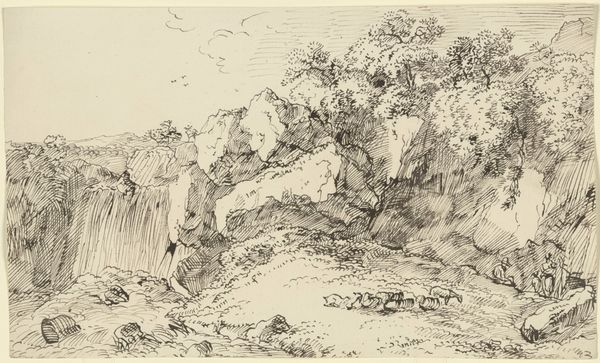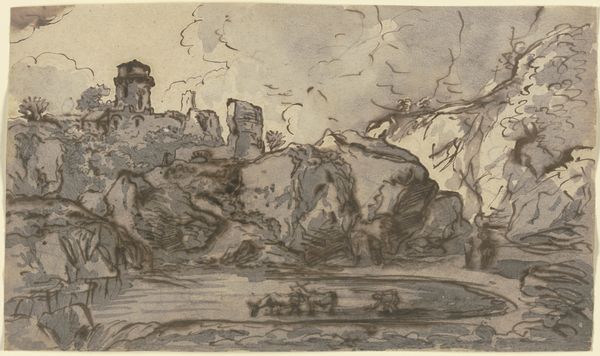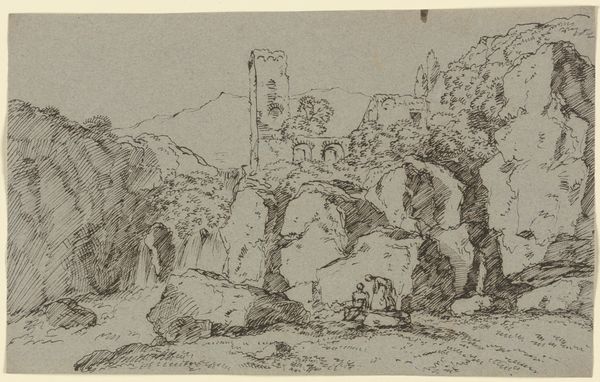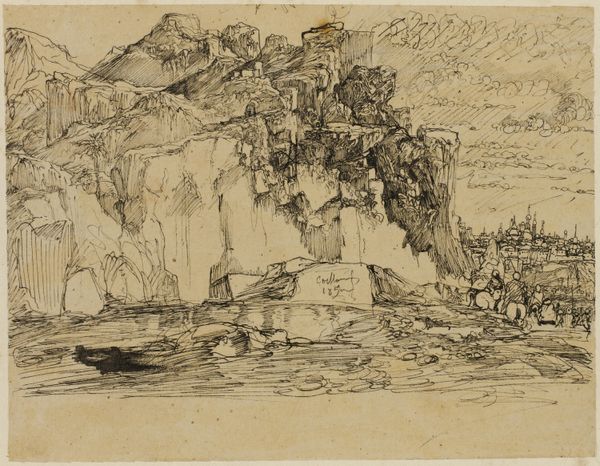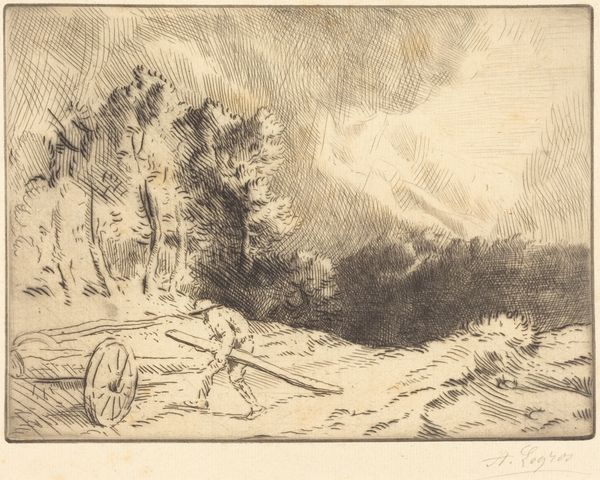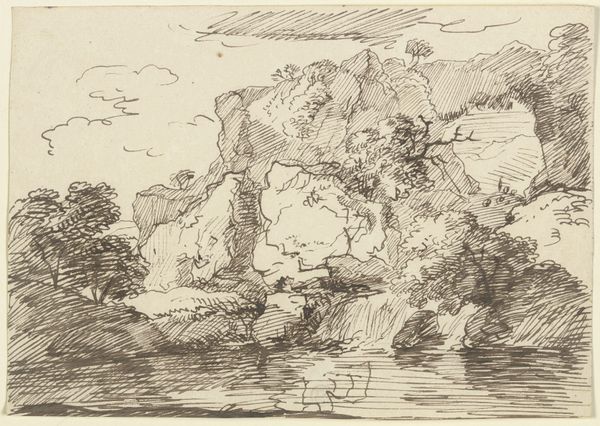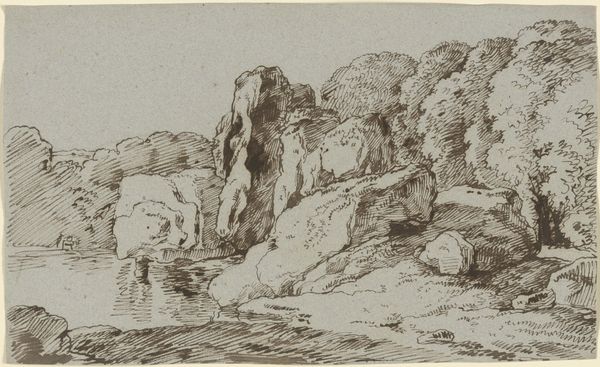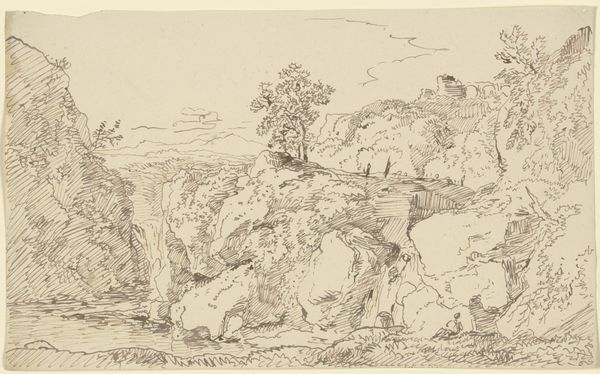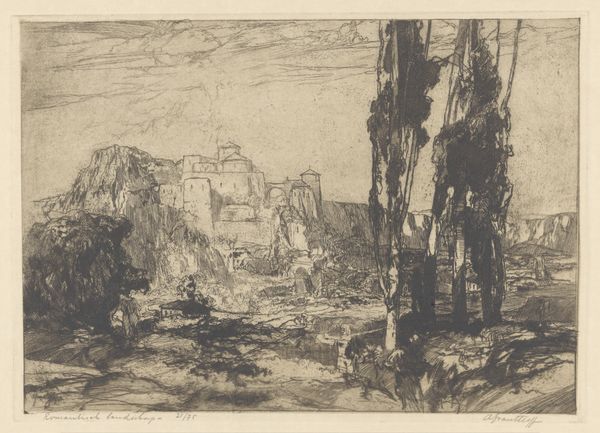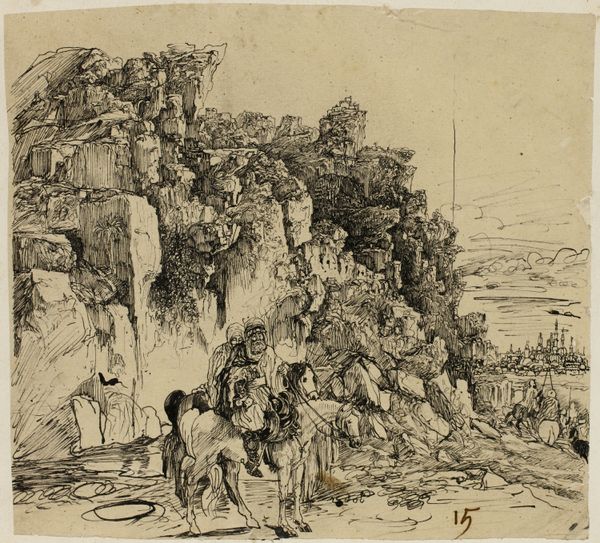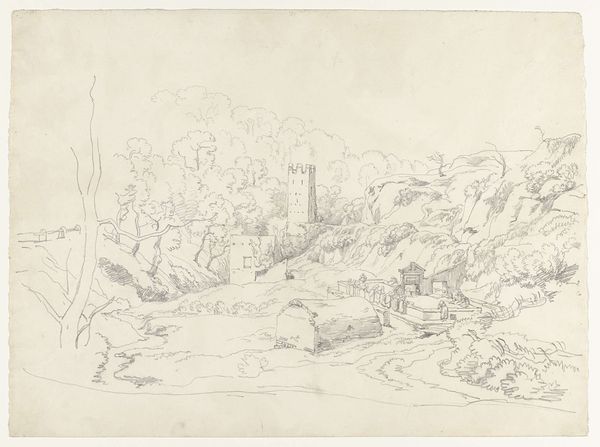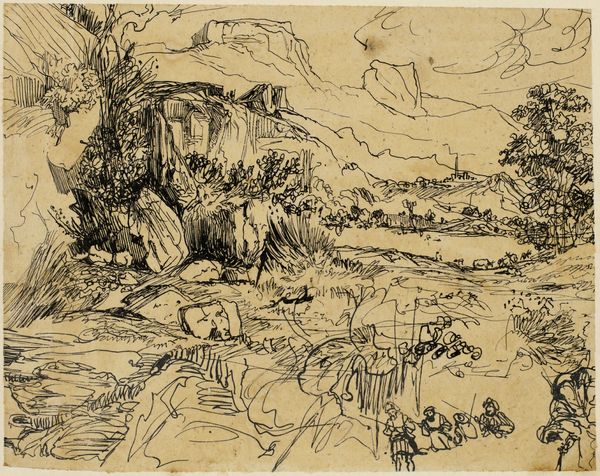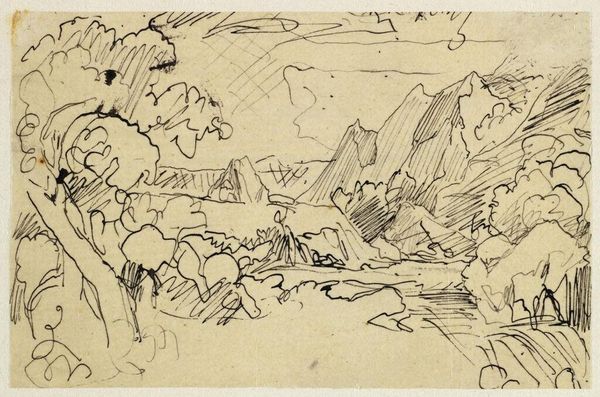
drawing, print, ink, pen
#
drawing
#
ink drawing
# print
#
pen sketch
#
landscape
#
ink
#
line
#
pen
Dimensions: 4 11/16 x 6 15/16 in. (11.9 x 17.6 cm)
Copyright: Public Domain
Curator: Rodolphe Bresdin's "Caucasian Landscape," likely created between 1822 and 1885, presents a beguiling scene rendered in pen, ink, and print. What strikes you about it initially? Editor: Chaos. Beautiful, controlled chaos. A whirlwind of lines. It feels almost… anxious. The composition seems to be bursting with energy. Like nature is trying to break free. Curator: An apt description, really. Bresdin's technique involves a dense network of meticulously rendered lines. Considering his historical context, it feels like the natural world is literally fighting against being captured, labeled, controlled. What appears beautiful also hints at deep discordance. Editor: Absolutely. This piece resonates with the complexities of landscape art within colonial discourse. These "untamed" spaces that were simultaneously romanticized and exploited... look at how even the plants are drawn almost defensively! Are those people riding on horseback towards the cityscape? Curator: Indeed. The meticulous detail he gives to the landscape contrasts so sharply with the more loosely sketched figures riding toward what looks to me like an Ottoman city in the distance, and it makes me think of movement, travel. This artwork itself seems to document or perhaps imagine, an expedition into new lands. The journey might appear one way at the beginning, but shifts once encountered in person. Editor: This idea of encountering something new… that's potent. Because when you see the people going to the town in the distance, it also feels a little like conquest. Bresdin lived through times of intense colonization. How can we look at this idyllic, hyper-detailed landscape without thinking of the land as something already inhabited, claimed? Whose gaze are we adopting? Curator: A potent question, certainly. I'd say the drawing demands such self-awareness. Bresdin doesn't allow us to passively observe. The work confronts us, forcing us to actively question how we understand "landscape" itself. And honestly, given his life of poverty and constant movement, I almost feel a sense of restless wandering baked into this particular image. Editor: Perhaps the beauty lies in the tension, in the acknowledgement of that restlessness. Thank you. This has opened up so many new perspectives for me. Curator: It’s been my pleasure. Hopefully, our discussion has opened a few new paths of inquiry for our listeners as well.
Comments
No comments
Be the first to comment and join the conversation on the ultimate creative platform.
